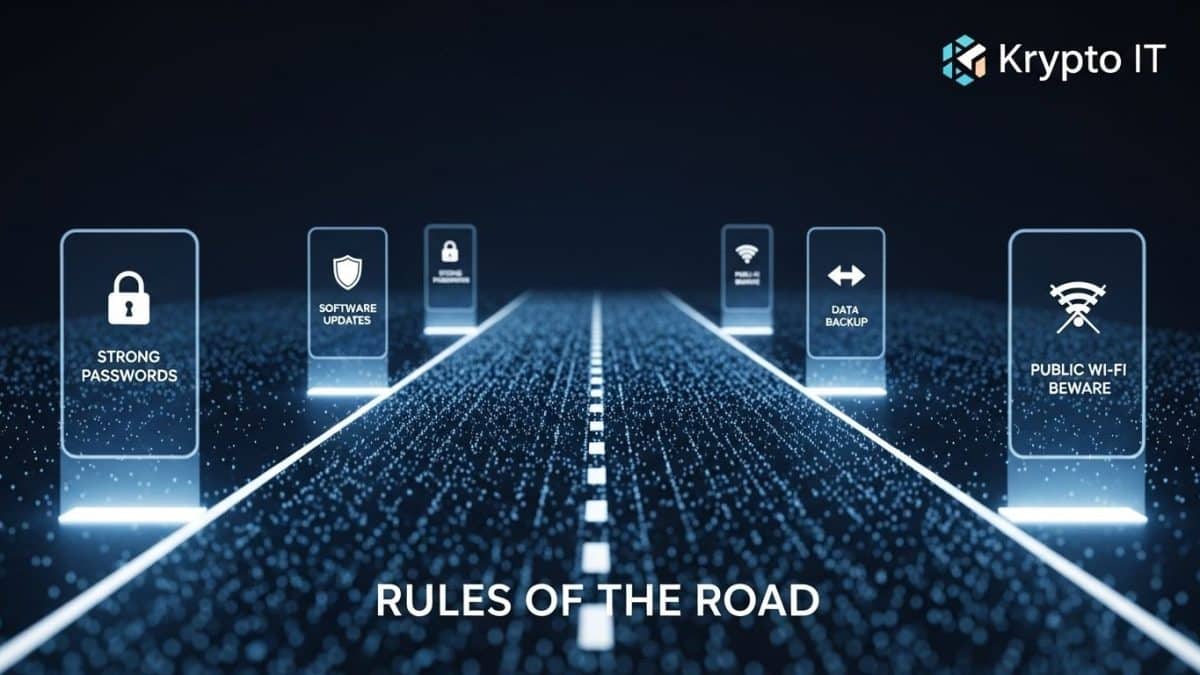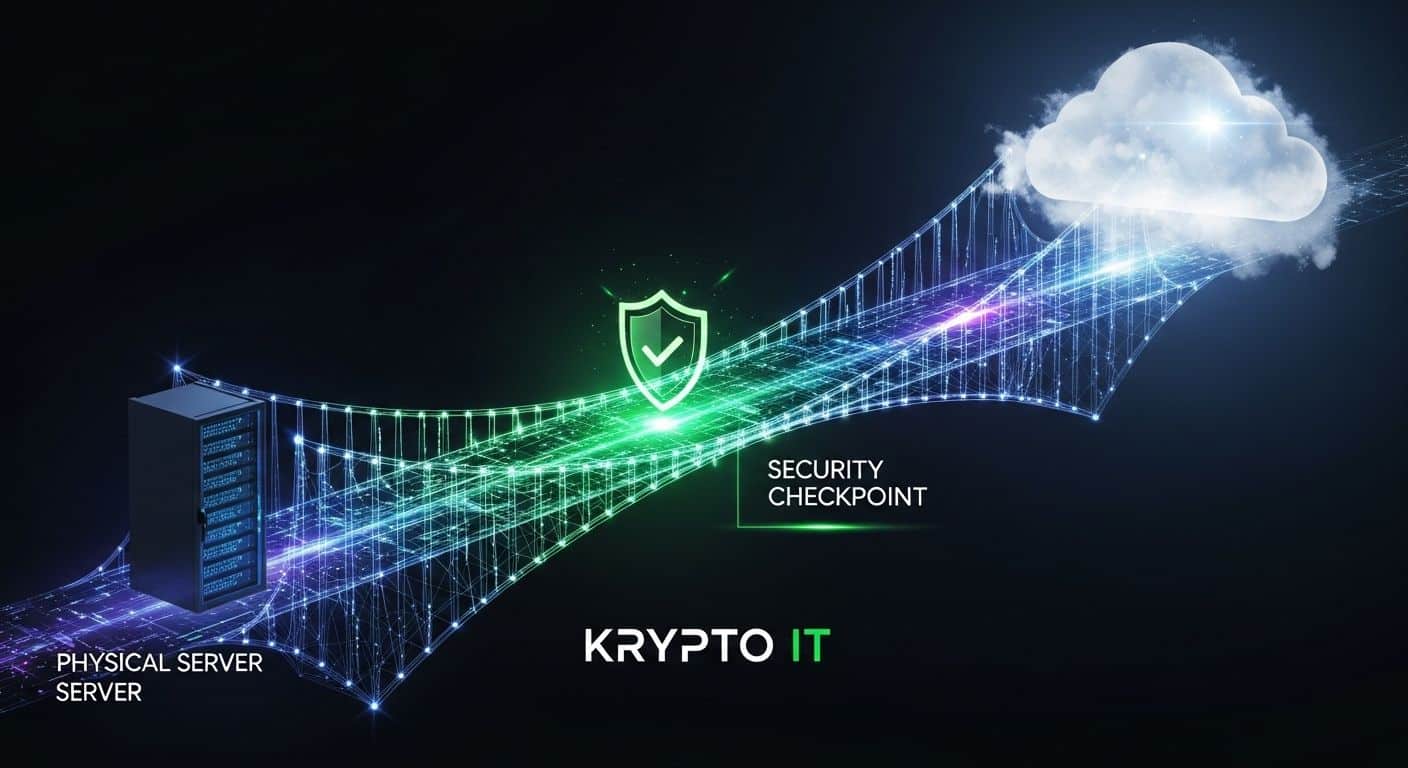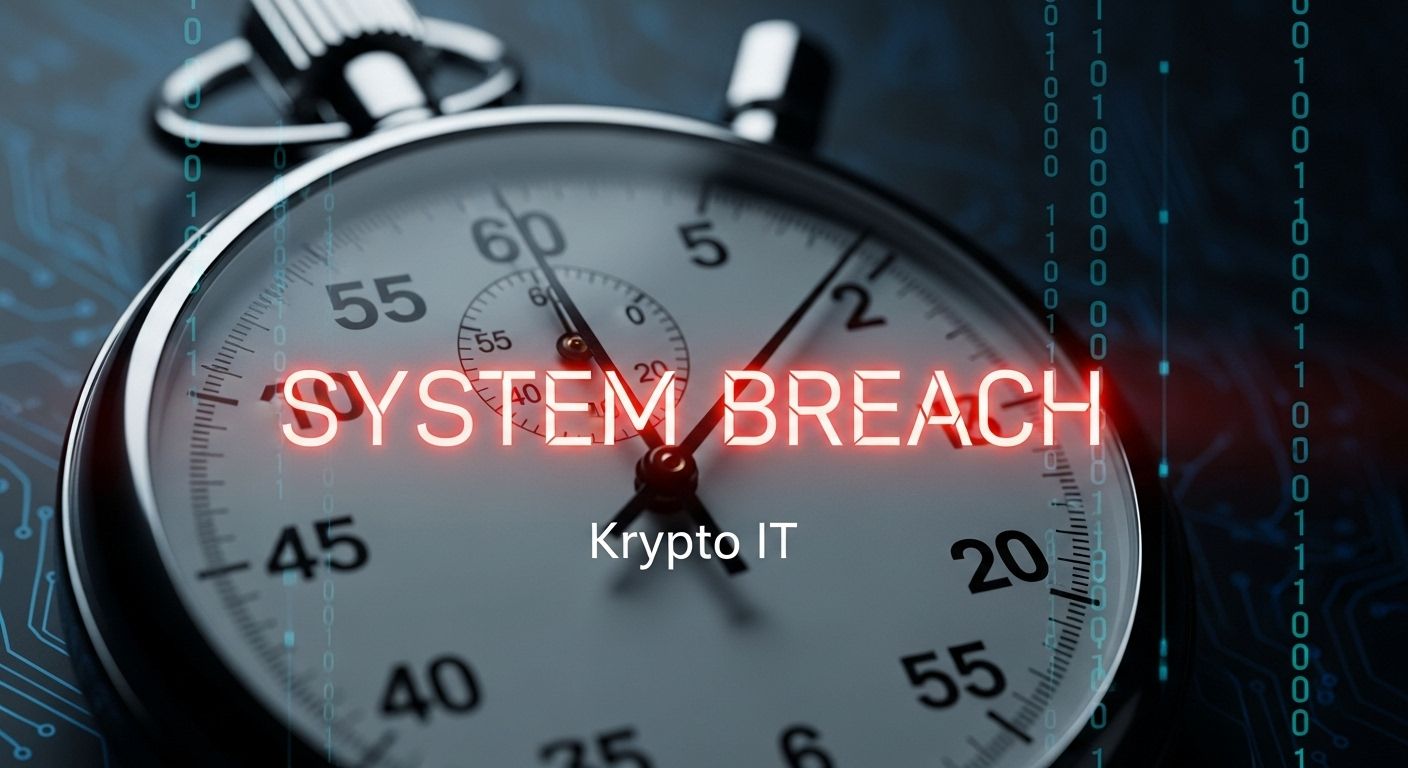
Cyber Insurance: What It Covers, What It Doesn’t, and When You Need It
November 19, 2025
Data Disposal Done Right: The Secure Way to Retire Old Devices
November 22, 2025By the Team at Krypto IT | Cybersecurity Experts Serving Houston SMBs
For many small to medium-sized businesses (SMBs), the word “policy” conjures images of thick, dusty manuals that no one ever reads. When it comes to digital security, this mentality is a major liability. A security policy is not bureaucracy; it’s a necessary map—the digital rules of the road that guide your employees, protect your data, and safeguard your financial future.
Without a clear, documented, and enforced security policy, every employee makes up their own rules. This leads to chaos, human error, and massive, unmanaged risk that cybercriminals exploit daily.
At Krypto IT in Houston, we believe a security policy for an SMB should be simple, enforceable, and focused on high-impact behaviors. This guide breaks down the four essential, non-negotiable policies you need to put in place today.
1. The Acceptable Use Policy (AUP): Setting the Boundaries
The AUP defines how employees can and cannot use company-owned resources (laptops, phones, network, email, internet access). It sets the baseline for expected behavior and provides management with the authority to enforce compliance.
What It Must Cover:
- “Shadow IT” Prohibition: Explicitly state that employees cannot install, download, or use unsanctioned software or cloud services (like personal Dropbox or chat apps) for company business.
- Internet Use: Define what constitutes acceptable browsing (e.g., no illegal content, excessive streaming, or accessing malicious sites).
- Software Installation: Require all new software to be approved and installed only by the IT department or Krypto IT to prevent malware injection.
The Benefit:
The AUP legally establishes the perimeter of acceptable digital behavior, which is critical if you ever need to discipline an employee for a security lapse or if your cyber insurance requires proof of policy enforcement.
2. Access Control Policy: Limiting the Keys
This policy governs who can access what data and how they must prove their identity. This is the implementation of the Principle of Least Privilege (PoLP).
What It Must Cover:
- Mandatory MFA: Require Multi-Factor Authentication (MFA) for all corporate email (Microsoft 365, Google Workspace), VPN access, and administrative logins. This stops 99.9% of credential-theft attacks.
- Least Privilege: State that employees will only be granted the minimum access rights necessary for their job role. (e.g., Sales should not have access to the HR payroll server).
- Password Management: Mandate the use of a company-approved password manager to ensure unique, complex passwords are used for every account.
The Benefit:
If an account is compromised, the policy limits the “blast radius” of the breach, protecting your most sensitive assets from lateral movement by a hacker or malicious insider.
3. Remote Work and BYOD Policy: Securing the Home Office
If your SMB utilizes a flexible or remote workforce, your security policy must extend beyond the four walls of your Houston office.
What It Must Cover:
- VPN Usage: Mandate that employees must use a secure, corporate VPN when accessing company data from any network outside the office (especially public Wi-Fi).
- Device Control: For BYOD (Bring Your Own Device), require all personal devices accessing corporate data to have endpoint security software installed and automatic screen lock/encryption enabled.
- Reporting Loss: Require employees to immediately report the loss or theft of any device (laptop, phone) so Krypto IT can initiate an immediate remote wipe of corporate data.
The Benefit:
The policy standardizes security for your dispersed workforce, minimizing the risk of data exposure through unsecured home routers or public Wi-Fi.
4. Data Backup and Retention Policy: The Safety Net
A clear policy on data management ensures your business can recover from any disaster—hardware failure, ransomware, or natural disaster.
What It Must Cover:
- The 3-2-1 Rule: State that all critical business data must be backed up according to the 3-2-1 rule (three copies, two types of media, one copy off-site).
- Retention Period: Define how long different types of data must be retained (for legal/compliance reasons) and when old, unnecessary data must be securely destroyed (to limit liability).
- Recovery Testing: State that recovery protocols will be tested annually to ensure systems can be restored within a defined time frame (RTO/RPO).
The Benefit:
The policy provides clarity for your IT provider and guarantees that your data retention and recovery practices meet legal obligations and business continuity goals.
From Policy to Practice: Partnering with Krypto IT
A security policy is useless if it lives only on paper. It must be actively enforced, monitored, and integrated into your employee training.
Krypto IT helps SMBs by:
- Drafting: Translating complex security requirements into simple, enforceable policies tailored for your Houston business.
- Enforcement: Using professional tools to automatically enforce policies (like MFA and endpoint security) across all devices and accounts.
- Training: Integrating policy awareness into mandatory Security Awareness Training so employees understand the rules of the road.
Stop operating in chaos. Let Krypto IT help you set the digital rules that protect your team and your future.
Ready to build your simple, effective Security Policy? Contact Krypto IT today for a complimentary consultation.




